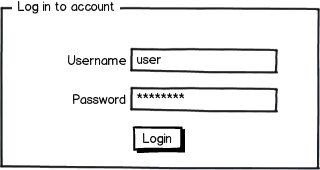I can't speak for others, but I know why I do it: it's because, if my fingers slip while typing, what usually happens is that I end up hitting the side of a key, or a spot between two keys, or hitting the key only weakly, rather than hitting the intended key solidly right in the middle as I meant to.
Now, depending on exactly how hard and at what angle my finger happens to hit that spot, it might result in two, one or no characters being entered. And, unless that happens right near the beginning of the password, I'm not going to start counting all the "•"s to find out which one of those cases happened — it's much easier to just erase the password and retype it.
(Possibly relevant background info: I don't touch-type, although my two-fingers-plus typing style is reasonably fast. Also, my passwords tend to be fairly long, from 12 to 30 characters — I know enough about computer security to know that, with passwords, one can have at most two out of "short", "secure" and "memorable", and I prefer to pick the last two.)

